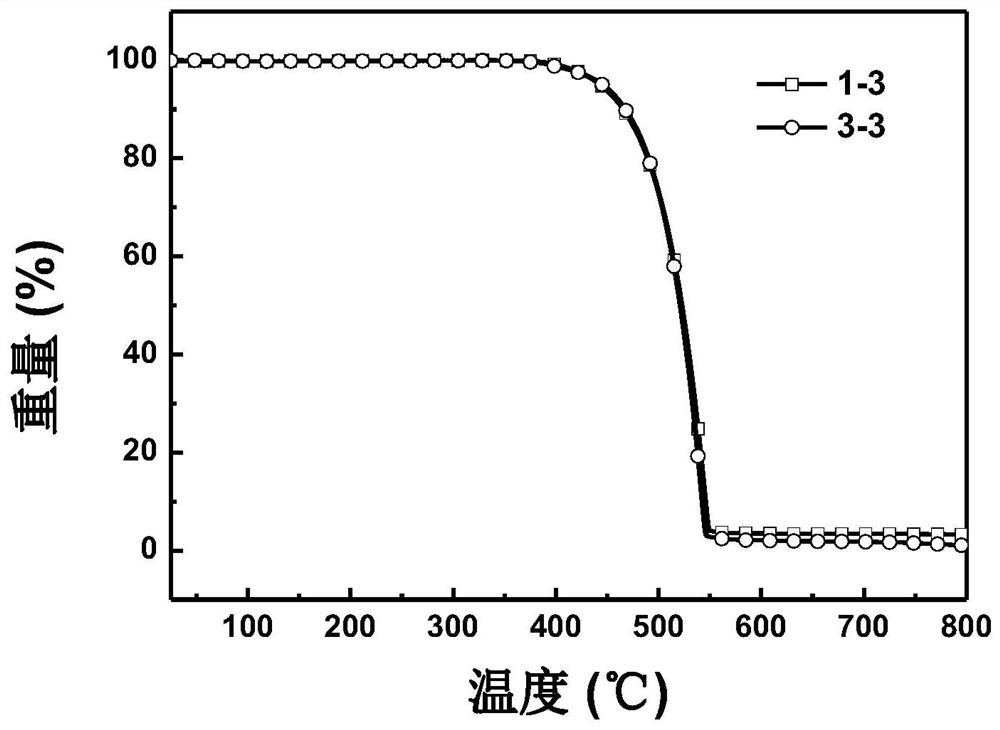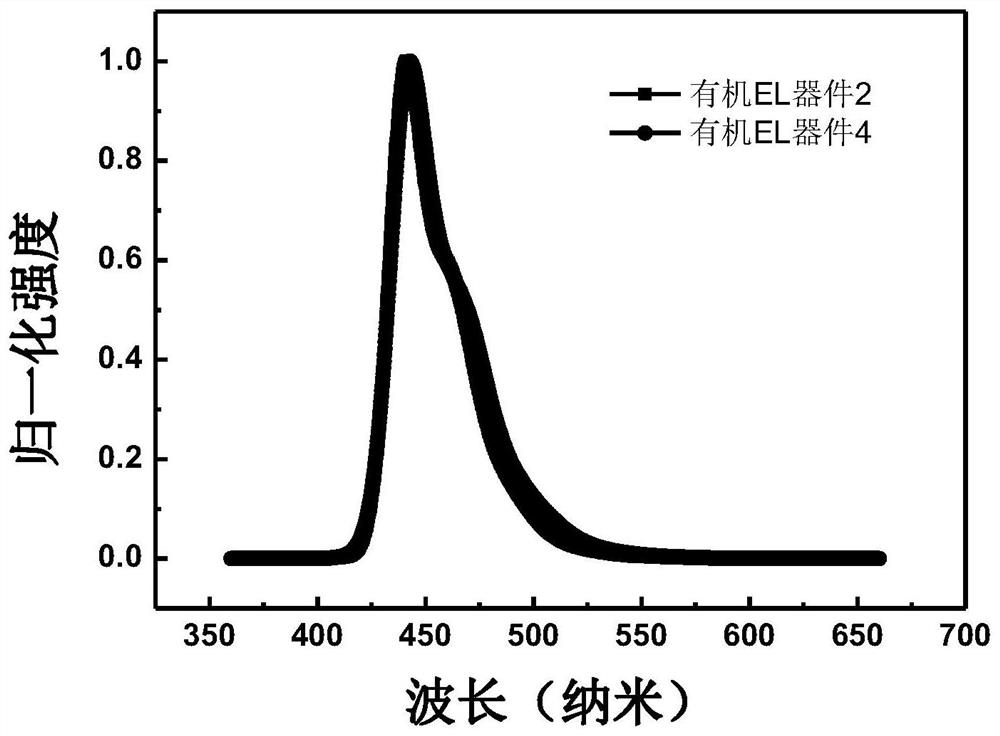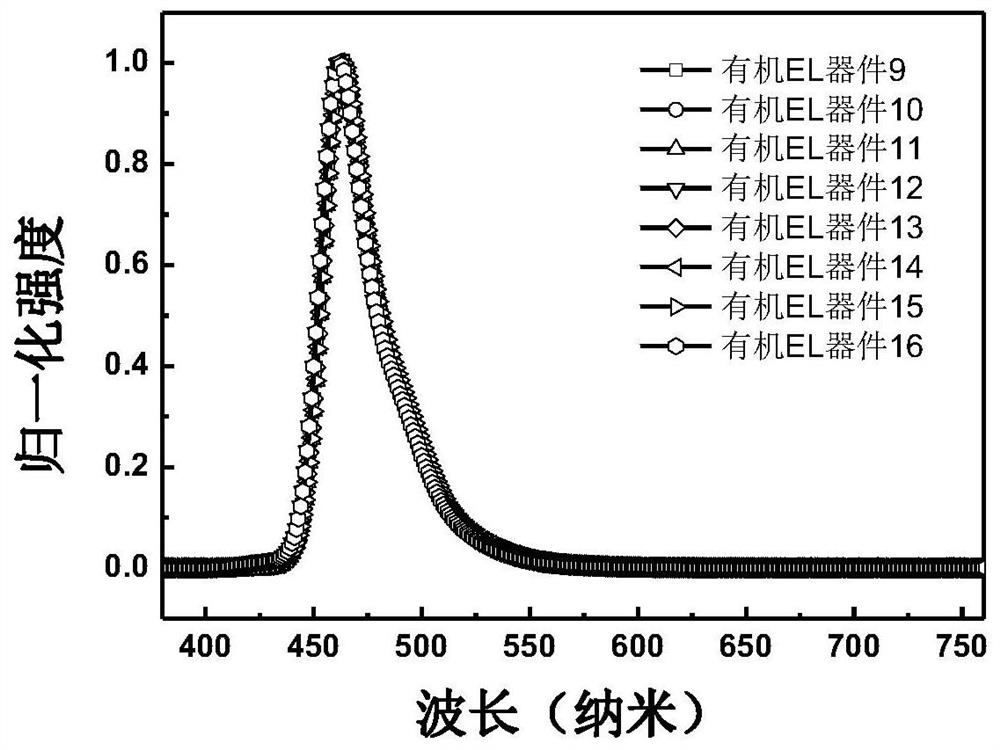Fluorene compound and light-emitting device thereof
A fluorene compound and light-emitting device technology, which is applied in the field of organic optoelectronic materials to achieve the effects of high fluorescence quantum yield, improved luminous efficiency and good film-forming properties
- Summary
- Abstract
- Description
- Claims
- Application Information
AI Technical Summary
Problems solved by technology
Method used
Image
Examples
Embodiment 1
[0134] Example 1: Synthesis of Compounds 1-3
[0135] [Synthesis of Compound M1]
[0136] The synthetic route of compound M1 is as follows:
[0137]
[0138] Under nitrogen atmosphere, 2-(methoxycarbonyl)benzeneboronic acid (8.6g, 47.8mmol), anhydrous sodium carbonate (8.4g, 79.6mmol), 1-bromo-4- Chloro-2-iodobenzene (12.6g, 39.8mmol), tetrakis(triphenylphosphine palladium) (470.8mg, 4.8mmol) and a mixed solvent of toluene, water and ethanol (100mL, toluene:water:ethanol=5:1 :1(V / V)). The system was gradually heated to reflux, and the reaction was carried out overnight under reflux. After the reaction was completed, the heating was stopped and cooled to room temperature. The reaction solution was poured into water (about 200 mL) and extracted with dichloromethane. The organic phase was dried over anhydrous sodium sulfate, concentrated under reduced pressure, and further purified by column chromatography (the stationary phase was 350-mesh silica gel, and the eluent was ...
Embodiment 2
[0160] Example 2: Synthesis of Compounds 1-4
[0161] [Synthesis of Compound M6]
[0162] The synthetic route of compound M6 is as follows:
[0163]
[0164] Under nitrogen atmosphere, phenylboronic acid (5.8g, 47.8mmol), anhydrous sodium carbonate (8.4g, 79.6mmol), compound M4 (12.2g, 39.8mmol), tetrakis(triphenylene) were successively added to a clean 250mL three-necked flask. phosphine palladium) (470.8 mg, 4.8 mmol) and a mixed solvent of toluene, water and ethanol (100 mL, toluene:water:ethanol=5:1:1 (V / V)). The system was gradually heated to reflux, and the reaction was carried out overnight under reflux. After the reaction was completed, the heating was stopped and cooled to room temperature. The reaction solution was poured into water (about 200 mL) and extracted with dichloromethane. The organic phase was dried over anhydrous sodium sulfate, concentrated under reduced pressure, and further purified by column chromatography (the stationary phase was 350-mesh silic...
Embodiment 3
[0169] Example 3: Synthesis of Compound 3-3
[0170] [Synthesis of compound 3-3]
[0171] The synthetic route of compound 3-3 is as follows:
[0172]
[0173] Under a nitrogen atmosphere, phenyl-D5-boronic acid (3.0g, 23.9mmol), anhydrous sodium carbonate (4.2g, 39.8mmol), compound M5 (10.6g, 19.9mmol), compound M5 (10.6g, 19.9mmol), Tetrakis(triphenylphosphine palladium) (235.4 mg, 2.4 mmol) and a mixed solvent of toluene, water and ethanol (100 mL, toluene:water:ethanol=5:1:1 (V / V)). The system was gradually heated to reflux, and the reaction was carried out overnight under reflux. After the reaction was completed, the heating was stopped and cooled to room temperature. The reaction solution was poured into water (about 200 mL) and extracted with dichloromethane. The organic phase was dried over anhydrous sodium sulfate, concentrated under reduced pressure, and further purified by column chromatography (the stationary phase was 350-mesh silica gel, and the eluent was ...
PUM
| Property | Measurement | Unit |
|---|---|---|
| thermal decomposition temperature | aaaaa | aaaaa |
| thermal decomposition temperature | aaaaa | aaaaa |
| thickness | aaaaa | aaaaa |
Abstract
Description
Claims
Application Information
 Login to View More
Login to View More - R&D
- Intellectual Property
- Life Sciences
- Materials
- Tech Scout
- Unparalleled Data Quality
- Higher Quality Content
- 60% Fewer Hallucinations
Browse by: Latest US Patents, China's latest patents, Technical Efficacy Thesaurus, Application Domain, Technology Topic, Popular Technical Reports.
© 2025 PatSnap. All rights reserved.Legal|Privacy policy|Modern Slavery Act Transparency Statement|Sitemap|About US| Contact US: help@patsnap.com



